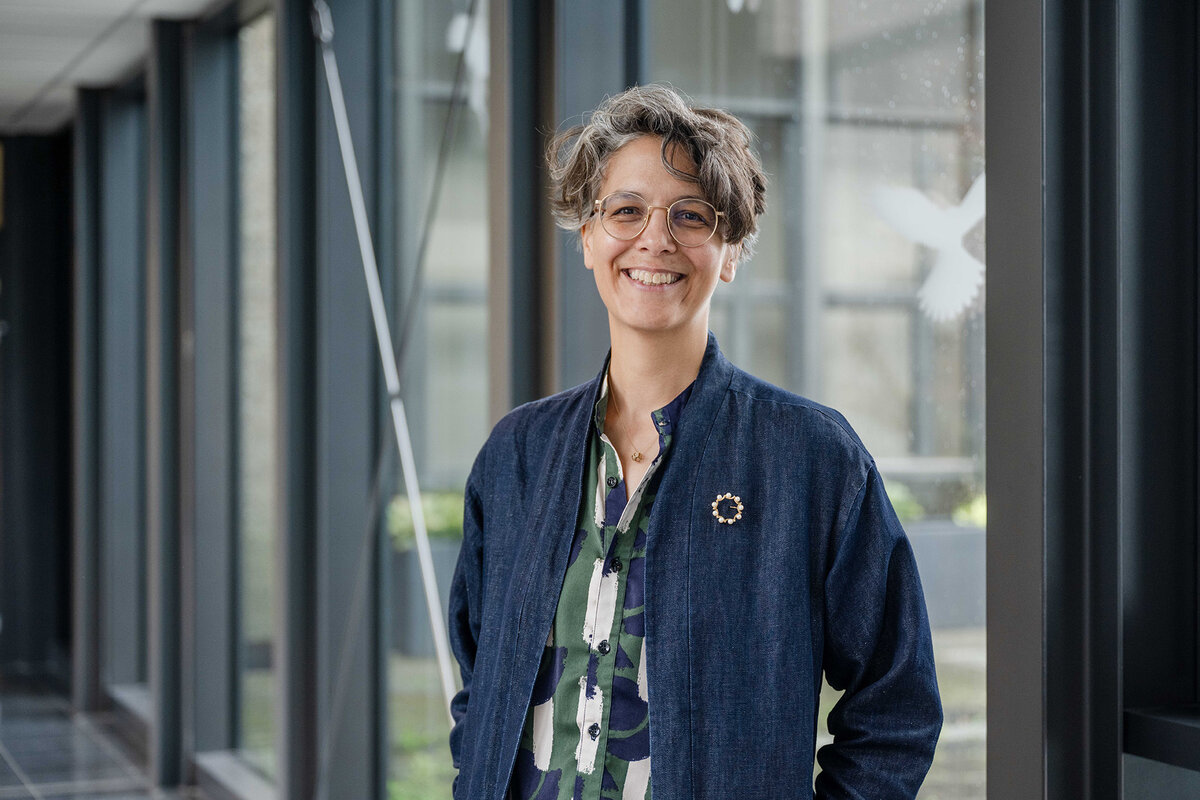
15/10/2024, Essen
 © RUB, Marquard
© RUB, Marquard
With Tahani Nadim, Ruhr University Bochum and the College for Social Sciences and Humanities have gained a versed sociologist of science with a strong interdisciplinary profile for a research professorship in digital humanities.
In October 2024, the sociologist of science Tahani Nadim has taken up the research professorship ‘Curating Digital Objects of Cultural Knowledge and Memory‘, which is based at the Institute of Art History of Ruhr University Bochum and is part of the College for Social Sciences and Humanities of the University Alliance Ruhr. In her research, Nadim combines the fields of sociology, anthropology, history of science and cultural studies. At Ruhr University Bochum and the College, she will investigate how digital technologies and digital curating practices affect memory cultures: “Preserving memories and having access to them is essential for people's sense of self, for their right to self-determination and democratic participation“, Nadim says.
As part of the research focus ‘Civic Digitization‘, she intends to build bridges between research and practice: a ‘Memory Lab’ will make it possible to digitalise private collections such as diaries, photos and videos, and stimulate exchange between research, civil society and archives. In doing so, it is also important to Nadim to make visible what she calls the “multiperspectivity of history”. She wants to take her time exploring the Ruhr region and get to know local initiatives and archives.
Tahani Nadim is particularly interested in the Ruhr area’s social diversity and the process of transformation that the region, characterised by former mining and migration, is still undergoing. For another strand of her research focuses on the changing relationships between humans and environment, and on the role that environment and nature play in our memory culture. This entails examining the effects of the social-ecological transformation, which are unevenly distributed, and aspects of conservation and preservation: “We are combating the loss of biodiversity and we want to preserve nature and species. However, preserving always implies selecting and excluding – it comes at a cost“, Nadim argues. She will include this political dimension in her teaching, which she intends to be interdisciplinary as well as topic- and problem-oriented.
“How we experience and manage nature is determined by concepts and differences that are human-made.“
Nadim has long been conducting research at the interface between the humanities and the natural and life sciences. For instance, she examined the effects of datafication in the context of natural history, biodiversity and genomics: “What interested me was how the increased focus on retrieving and processing data transformed the ways of knowing in life and natural sciences, but also how the so-called ‘data revolution‘ challenged essential categories of thinking, such as ‘body’, ‘environment’, or ‘borders’“, Nadim explains. In her previous joint appointment at the Humboldt-Universität zu Berlin and the Museum für Naturkunde Berlin, she critically accompanied large-scale digitisation projects and co-founded the research centre ‘Humanities of Nature‘. In this novel research field, the entanglement of nature and culture becomes the subject of investigation: “How we experience and manage nature is determined by concepts and differences that are human-made: by the names we assign to plants and animals, and by classifications which are always informed by societal conditions and their historical contexts“, Tahani Nadim says.
Read the German version of this article on the website of Ruhr University Bochum: